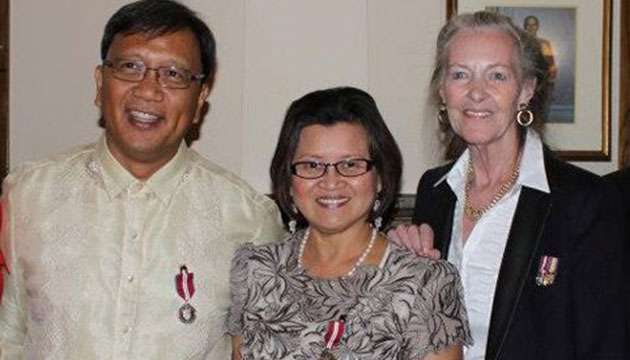November not only commemorates All Saints and All Souls days but celebrates the birth of Philippine national hero, Andres Bonifacio, on November 30.
To most Filipinos, he may not personify the idea of a conventional saint (he was a freemason married to a Catholic Gregoria de Jesus) but looking back at his life, Andres Bonifacio truly deserves a place in heaven and worthy of emulation by so many of us Filipinos who struggle to make ends meet while aspiring to serve a purpose much bigger than our own.
The Bonifacio family may not be dirt poor, but they did not possess the same privileges that sent Jose Rizal to Europe for his education.
As a young boy, Bonifacio made canes and fans to sell - he was masipag (industrious). Andres Bonifacio’s education was spotty at best, but he learned English as a teenager working for a British firm - he was maabilidad (street smart). He is said to have voraciously read books about the French Revolution, novels like Les Miserable and The Count of Monte Cristo and of course, Rizal’s Noli Me Tangere and El Filibusterismo - he was palaaral (studious).
He may not have been of Christian faith, but Bonifacio’s faith rested on the Filipino and the belief that sovereignty over the Philippines belongs to Filipinos alone - he was makabayan (patriotic). In symbolic defiance, he tore up the cedula during the Cry of Balintawak and it was then that Filipinos started to see their homeland as their InangBayan, not a Spanish territory.
Just like the Christian saints, Bonifacio struggled in his journey towards martyrdom but never wavered in his faith. He collaborated with Rizal and others, established the Katipunan that fueled the Philippine Revolution and believed that unity among Filipinos would lead them to independence. But just like Christians martyred in homelands that outlawed Christianity, Bonifacio was betrayed by his own fellowmen – the same countrymen whose native land Bonifacio so tirelessly defended from the Spaniards.
In a paper presented at the Third European Philippine Studies Conference in France in April 1997, Philippine historian Ambeth Ocampo observes, “If you take the time to look back and reflect on our history—not just 1896—you will discover that it reveals more questions than answers.”
He adds, “No matter how hard we try to forget, how skillfully we sanitize history, the fact is Bonifacio’s death forces us to admit the painful reality that even in the ‘glorious’ revolution… Filipinos were fighting fellow Filipinos.”
Bonifacio’s life and death and the circumstances that surround both reflect the Filipino society of today. Individually and given the same level playing field, there is no question that the Filipino can excel. The world continues to see this in the artists and athletes who compete on international stages and scientists who are recognized by international organizations. Sadly, as a nation, we fail, and we only have ourselves to blame.
We are “Filipinos…fighting fellow Filipinos” as Ocampo sadly notes. We see this in the news, in social media and even at the Filipino family table. We struggle to unite and when we do, it seems fleeting. The People Power Revolution that the world celebrated with us only happened in 1986, not even a lifetime ago.
Globalization in the 21st century brings with it a world that blurs national identities, particularly with Filipinos who are scattered in every nook and cranny of the world, taking on various ethnic and social integrations in order to belong and thrive wherever they may choose to take root.
The notion of an Andres Bonifacio may be lost on a Filipino Canadian, for example, who was born and raised in a country like Canada that knew no revolutions or threats of colonial power. But when the time comes that Canada will need a unified people, where do we turn to? And if we do not acknowledge the “saints” of our history and learn from their lives, then we would truly be lost even if we find ourselves in our Inang Bayan.
By Rachel Ramos-Reid for
The CFNet Editorial Board
Contact us at:










